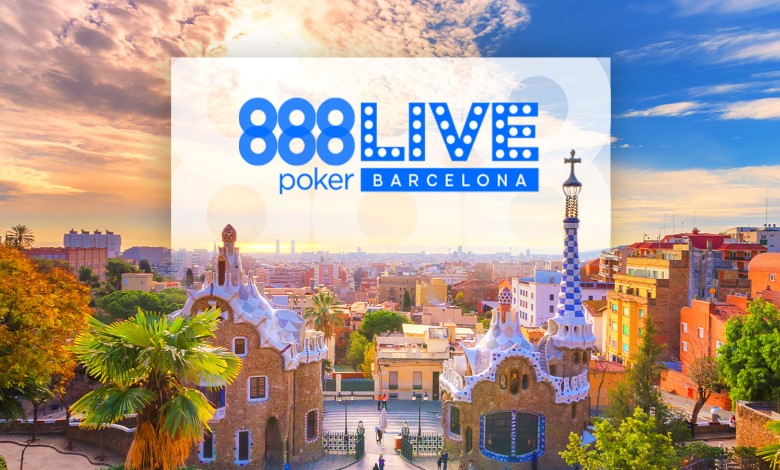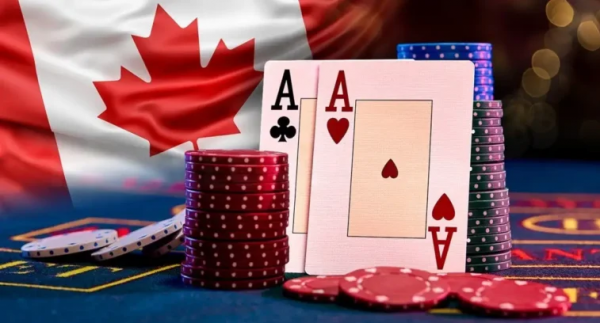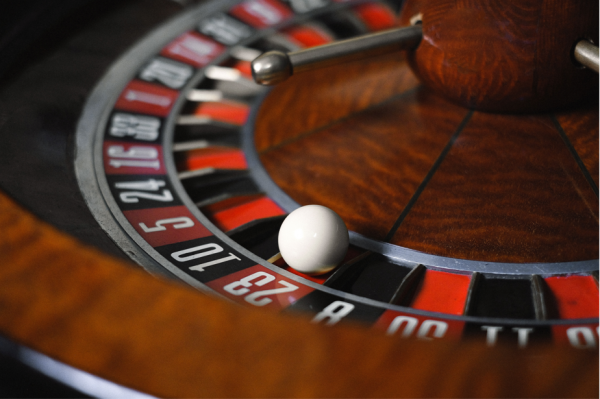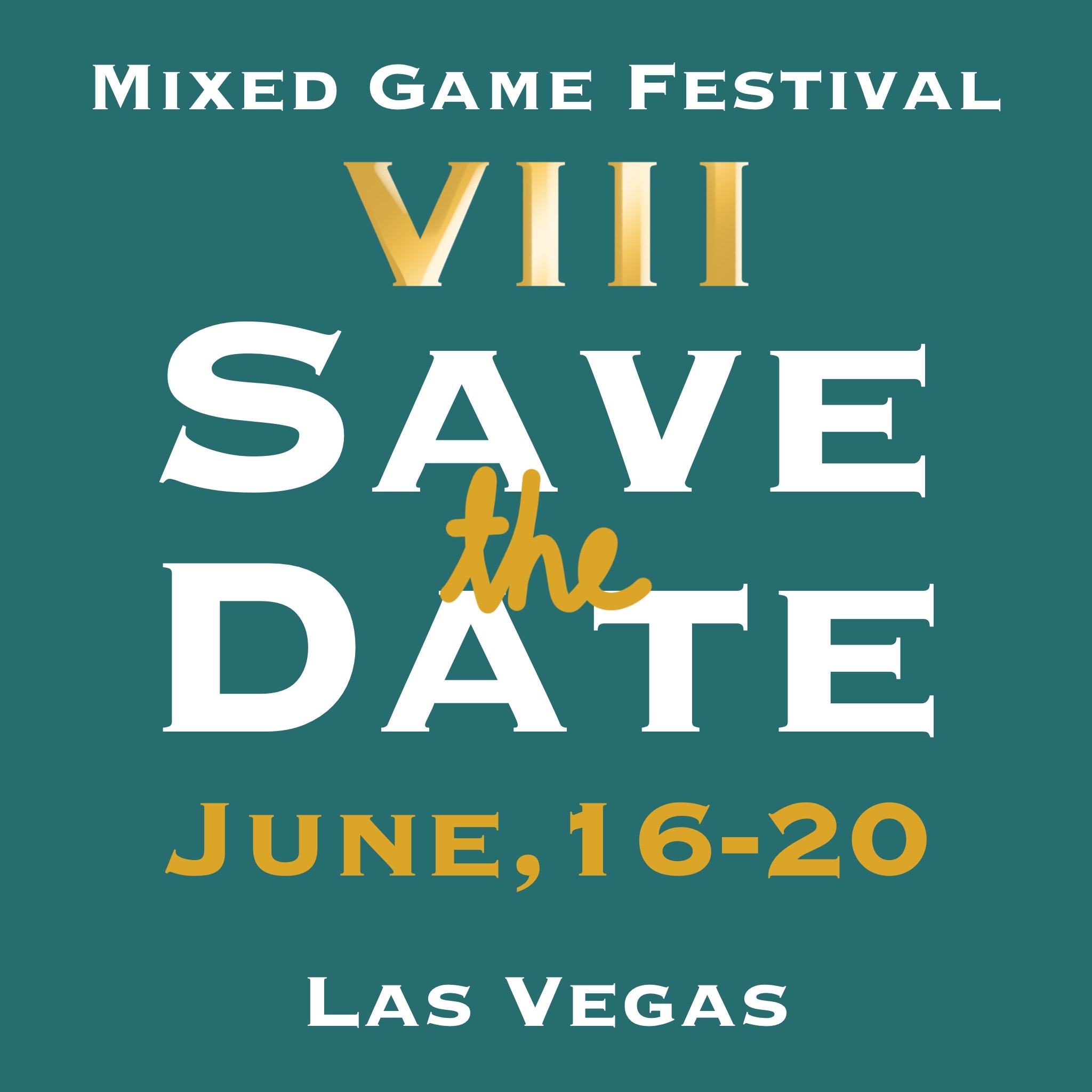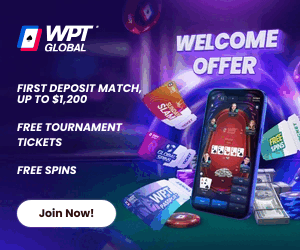Andre Akkari is a Brazilian poker player who almost needs no introduction, having accrued over $3 million in tournament earnings alone during his illustrious career.
While not solely responsible for the growth of poker in South America, the long-beloved Akkari is owed a great debt by his Brazilian countrymen for aiding the growth of the game in the region.
Akkari is a proud PokerStars Team Pro member and his infectious smile matches his on and off-felt personality. The party doesn’t start until Andre Akkari has arrived!
Andre was kind enough to spend some time chatting with Cardplayer Lifestyle at the 2023 PokerStars Players Championship.
A transcript of our interview is included below.

Robbie Strazynski, Cardplayer Lifestyle: You’ve cashed about a dozen times across its various iterations of the PokerStars Caribbean Adventure here in the Bahamas – what makes playing in this part of the world such a special experience for you?
Andre Akkari, PokerStars Team Pro: Well first, being Brazilian it’s like being home; being in my country. I have a lot of Brazilians who make the trip to the Bahamas. The group of Brazilians hang out. We drink some beers. We have some fun at the pool. It’s super nice, and — aside from that — we play some super-amazing poker. So it’s great to be here.
Robbie: You’ve finished second and you’ve finished third in the hunt for one of the ‘Spadies’ — the PCA trophies. Just how badly do you want to lift a ‘Spadie’ and to put one in your trophy cabinet?
Andre: When you’re a professional poker player — of course — for people outside of this ‘poker world,’ seeing trophies and bracelets and those kinds of things. They look important and they are. But more important than that [for a professional poker player] is being profitable, running the circuit in a good way, and trying to do it more and more years.
So, in order to do that, you have to play well; you have to have a good graph. So that’s what I focus on more. Of course I want to win. Of course I want the trophies. But for a [professional] poker player, that’s not the most important part. The most important part is to keep working on your game and getting results through collecting profit. So that’s what I focus on. I’m going to try to keep winning trophies, too.
Aniversário de 10 anos do título da WSOP! Respeita o Brasil!!! O brasileiro é forte demais. pic.twitter.com/T0YA10SCAp
— andre akkari (@aakkari) June 28, 2021
Robbie: I guess it’s like professional athletes also. You want to look at your performance. You always look at your performance after that fact and think, “What could I have done better? – Did I make a mistake?” That sort of a thing?
Andre: When you decide to be a professional player in any kind of sport — including mind games or analytical games — you’re going to lose more than you’re going to win when it comes to trophies. Take Michael Jordan: he lost more than he won in the benchmark of NBA World Championships.
What we have to focus on is improving, continuing the evolution, and that’s what I’m focused on.
Robbie: I want to talk to you about resilience, because you did come very, very close to winning your second WSOP bracelet. You finished runner-up this last year in the 9-Game Mixed Event. As you say, at the end of the day, you’ve got more money in your bank account. You can look, you performed your best. But sometimes, someone will just pip you. A little kicker. How do you rebound from what is an amazing finish, but still nonetheless, a second place finish.
Andre: When you’re in that moment, all of your focus is on winning and taking the right decision. My tilts take about 10-15 minutes after I lost, because what I put my mind on is everything around me. What kind of life I’m living. So when you realize that it’s a Wednesday at 4:00pm and you’re in Las Vegas playing poker. That’s so different from what I was living 20 years ago.
I don’t have the right to complain. I don’t have the right to be upset more than normal people just because of lost bracelets, but 15 minutes after [I lost a tournament], I’m smiling and laughing and doing jokes. I’m having a good dinner, and it’s not just about having money in my pocket. It’s a dream.
Robbie: I have to say that answer resonates very with me because I’m obviously not a professional poker player. But I get knocked out of a tournament and it takes me 30 minutes. So for a professional, I guess it takes only 15 minutes.
Andre: [laughing] Twenty-nine, twenty-eight, twenty-seven.

Robbie: I almost made the money in the $550 buy-in H.O.R.S.E. event here. It took me 30 minutes, and then I was like, “Don’t be upset. I’m in the Bahamas. I’m enjoying…”
Andre: If you forget those kinds of things, then — in my opinion — nothing makes sense. You’re never going to be happy. After you win a bracelet. Or you win a big tournament — then the next day, you’re not winning anything anymore. So you have to win again, and then again. So you’re going to be forever upset and sad, and I’m not that kind of guy with all the happiness in my life.
Robbie: You’re a PokerStars Team Pro and you’re wearing the patch from Brazil, so of course we’re going to talk about Brazilian stuff. The growth of Brazilian poker — especially after the pandemic — is incredible. And I don’t think the ‘outside of Brazil’ world can even realize just how big the game is. To what do you attribute that growth?
Andre: There is a negative point in Brazilian poker history that brought us to this position. Brazil, in 1945, all the mind-gaming and skill-gaming became illegal in the country. So you couldn’t play. We were only able to play later on in 2005, 2006. The only way you could play poker was if you could prove that poker is a mind-sport.
In order to prove that, we have to study. We have to debate with the government and the Minister of Sports. We have to debate in terms of how much skill is important in poker and we have to prove that.
So what happened in Brazil, was the development of a lot of poker schools. A lot of coaches. A lot of stables, and it didn’t happen in any other part of the world like it happened in Brazil. So when that situation was happening in 2006-2007-2008, and then you take that volume. So in 2018, Brazil would be have the best poker players in the world. That’s exactly what’s happening right now.
Nobody can compete with Brazil in online poker because. Naturally, online poker is easier for a Brazilian to compete at because we live far away from the action. A Brazilian has to go to Europe; take a flight; pay for a hotel. So everybody’s focused on online poker, and we’re top ranked.
Robbie: And on that note. On one hand, you’re all over-achieving almost. You’re hitting all the high notes and winning titles and lots of money. And at the same time, of course, Brazilians are known for just being the most boisterous, fun-loving, loud, Vamooooos type of rail. Is it two different types of things? Or are they connected to each other.
Andre: It’s a mix. The same history that has brought us to that positive situation is the same history that brought us to be a “one sport country.” You know, Brazil is all about soccer. So we live about soccer. Everything is about soccer. When you go to a soccer stadium in Brazil, that’s the kind of buzz that you’re going to see. The music; the screaming.
So for all the sports that we play. If you go to a volleyball match in Brazil, it’s going to be the same. It’s going to be crazy. People are going to be screaming because the school that we had, everything was soccer.

Akkari and global soccer superstar Neymar | Image credit: Neil Stoddart, PokerStars
For example, the United States is different. I now live in the United States — near Miami. in Boca Raton. The whole perception about gambling and skill games is different in the United States because gambling was always allowed in some way.
So in 1985 or 1995, when your kid was playing poker in the United States, you weren’t thinking that he/she was doing something wrong. Like that person should be punished. It’s something that — when I talk to some American people — you consider it even as some kind of positive thing.
“Oh, he’s smart. He’s intelligent.” Or he takes risk. He’s a gambler. And a gambler is not something super-negative anymore in the United States.
In Brazil, saying you gambled for a living, you were treated like you were a criminal, because in 1945 they made that illegal. The perception was different, and the only way to make poker big in Brazil was by creating schools and studying a lot. And then when you put in all that effort, and you conquer something… you scream, and you make parties. Because it’s nice; everything that’s happening.
It doesn’t mean that the American way is not the right way, it’s just the culture is different.
Robbie: You mentioned putting a positive spin on poker and you mentioned football-soccer. You are well-known friends of Neymar and many other footballers. And I imagine that the major, gigantic superstars not only within the country but around the world playing poker obviously helps with the public image. But I want to ask you about another footballer — Rest In Peace, Pelé.
He recently passed away, and he was like the Michael Jordan or Mohammed Ali level of that sport. It doesn’t get any higher. What is sort of the national mood now? To many, he was the personification of what it means to be Brazilian. How about now after his passing? How has that changed or maybe perhaps inspired another generation of people in the country?
Eu vi também, muito foda!!!!!
É o Rei 👑— Neymar Jr (@neymarjr) February 25, 2021
Andre: Brazil is a special place from both the negative and positive sides. Brazil never had a war. We never had a war. Nobody sent soldiers to another place. War is a horrible thing, but in some way, war brings people together. They are united to go to war. Brazil never had that experience. So the only way that Brazil was united by history was through soccer. And Pelé was The General; The Captain of everything.
He was like the most promoted in the most positive way in the Brazil spirit and everything around Brazil.
The good thing that I saw on the way that he left us was that he was preparing the country that he was getting sick. He was posting. Almost saying “goodbye.” Almost appreciating everyone; appreciating everything he loved. And we as a country had a chance to give it back.
Obviously the news was about him. The news, every article, every post, every story. So we did our best and after his passing, what is left is going to be forever. Videos and memories and everything that he made. It’s amazing. There is no negative point about him. He was the biggest Brazilian in history.
Robbie: Well, ‘sportifying’ a game is not something that’s new to you. Away from poker, you co-own the Furia eSports team. What’s it been like to sort of be the owner of a professional sports team? Do you see any sort of competitive similarities between that and poker?
Andre: That’s the kind of things that happens with adrenaline; the victories. I’m addicted to adrenaline. I’m always looking for action. I found eSports, and that’s huge action. Everything is about adrenaline. There are so many connections to poker. There are so many things that poker is helping our guys to improve; to be better.
In terms of thinking and risk. Thinking and looking for the optimal decision. I try to pass those kinds of points to them and I believe we have like 11 teams — for different games — and they are all impacted by poker. It’s great.
What we’re trying to do now is like trying to focus them on more behind-the-scenes poker and skills. Everything about reading people. Playing a lot of tables at the same time to see how you reflex is working and how you can look for small decisions. No matter what the results are.
The experience that you are going to get now is going to matter in the long term. Those kinds of concepts really impact them a lot. And that’s not the way that eSports was grown in Brazil, with those kinds of concepts. They just were looking for a win.
They know that they have to improve, but improvement was not the priority. It’s always like, “how can we win?” And of course, you’re just going to win if you improve your skill.
Poker is helping them a lot, and I think there’s going to be an explosion in eSports in the next two or three years because poker is going to invade all of these sports. Esports is huge. We don’t know which one is bigger between poker and eSports because both are great.
But I believe it’s going to be that invasion. Every eSports organization. It will be almost mandatory to connect at least some poker concepts.
Robbie: You’ve been around the block many times in poker. You’ve been doing this professionally for many, many years. It’s not like back in the day; 15 years ago, when people were getting into poker. “Okay, I could do this!” You see now that anyone who is exposed to poker now — they realize.
All of these professionals: they are working hard, they’re in the lab on poker training sites, they’re focusing on fitness. You know, it’s like no one is going to go and watch Rafael Nadal on the court and say, “I can beat him! I can hang with these guys”. Poker though, it’s still a mind-sport. What would you say to someone who is just coming into poker and to say, “Don’t necessarily be intimidated by the pros. You can also still succeed even now in 2023. What would they have to do?”
Andre: The nature of poker gives them the chance and gives them the adrenaline and the option to succeed against those players. More important than that is the experience.
There is no sport in the world where you can play against the Rafael Nadals, and you can test them. You can test the table and be with them and see how they react and improve yourself in those kinds of moments, in those kinds of experiences that you’re having.
So everybody in the United States who is playing home games with friends. They play the game because they love it. They play the game because they want to see flush draws hitting. They play the game because they want to improve. They want to be better in some way.
So what’s the best way then to face Roger Federer? You see how he’s acting; how long it takes him to bet. So it’s amazing, and you see everything. You see the Flop, you see the Turn, you see the River, you see the showing of cards. How he acts.
So it’s a “live school.” It’s like a live class that you can have all the time… and, besides that, you can beat him! You can beat him, you can get lucky. You can have that kind of moment — more skilled than him, and you can him like on the real tennis court [when playing poker]. So it’s amazing.
That’s the reason that poker is going to be forever. I don’t see anything comparable.
Robbie: Last question — we started out by saying you have been to the Bahamas many times. Probably many months of your life have been spent in the Bahamas. But this PSPC, it’s the first time it’s been held here at the Baha Mar. So in a sense, it’s a little bit of a new experience for you.
Besides playing poker in the ballroom, what are the types of things that you’ve enjoyed here that you haven’t done before?
Andre: Oh man. I have at least 25 close friends from Brazil here; we all came out here together. I’ve played pickleball every day during this trip. So we enjoy spending time together and having fun. Every time we’ve also had amazing food because this place is amazing.
Baha Mar is wonderful. The rooms are great. The restaurants are nice and not like super-expensive in a way that you cannot afford it.
And PSPC, in my honest opinion — it’s a revolution in terms of how huge poker events should be. Because this is one person that organizes events believing that you have to provide to all the players. Not just for the regulars or for the pros, you have to bring new people together to experience something that they’re not going to experience in their lives.
For example, there are 10-12 Brazilians who got a Platinum Pass and I was talking to them and taking pictures. Their reaction is something that I’ve never seen. Because I never saw somebody that doesn’t have $25,000 playing a $25k event and see $4 million [as the top prize].
The way that they’re reacting is like, “Man, the only way that I can see $4 million in Brazil is through the lottery!” Which is 100% impossible. Nobody’s going to win that.
So then, here, it’s some kind of skill, experience, an amazing venue. and they are facing the guys that they are seeing on TV. So for me it’s a revolution. It’s another kind… there’s no Main Event in the world that can compare to that process, in my opinion.
And what I am rooting for is for PokerStars to expand not just the PSPC, but expand the concept. And see how they can move forward and bring many more people together.
Robbie: That would be amazing!

